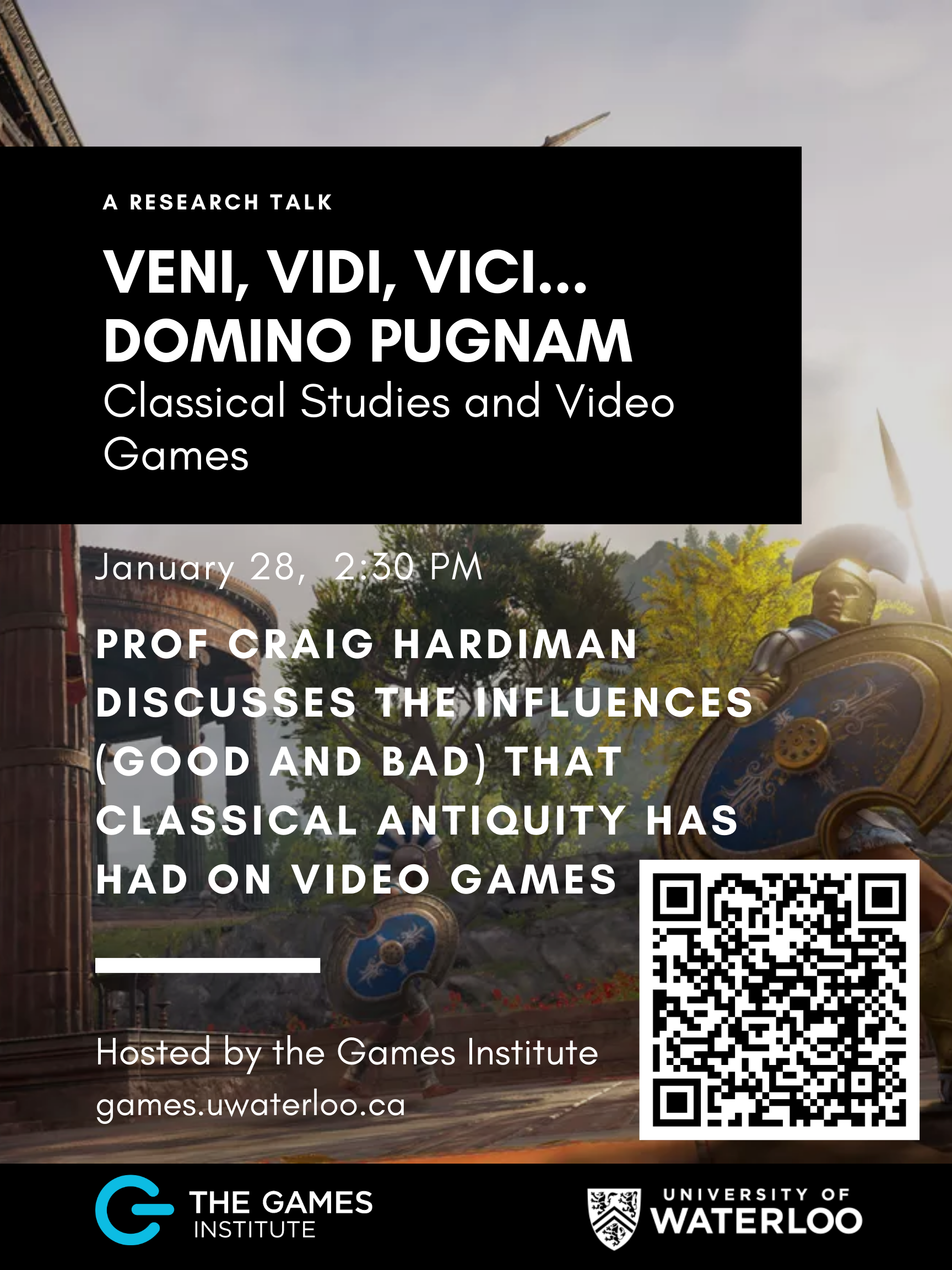Veni, Vidi, Vici... Domino Pugnam: Classical Studies and Video Games
Abstract
While both “Reception Studies” and computer games have been around for over half a century, the study of video games, especially home video games, as a vehicle for reception studies is still in its early years. This especially true when looking at the reception of Classical Antiquity (Ancient Greece and Rome, and the Ancient Mediterranean more broadly) in video games as a vehicle for reception studies. While several individual scholarly articles have appeared over the years, it was only in 2018 that the first monograph dealing with this issue was published and only in 2020 when the first collection of essays on this topic came out. And yet, ancient Greece and Rome have been at the core of video games since their inception as either a direct component of the game, or in using broad themes, narrative techniques or characters from the past. In this talk, Craig Hardiman (Dept of Classical Studies) will use some select case studies to illustrate the ways in in which Classical Antiquity has had a massive effect on the gaming industry and how these games may, in turn, have an effect on the ways in which Classical Antiquity is “taught” to the gaming communities.
Bio
Prof. Craig Hardiman is an Associate Professor of Classical studies. "My work primarily focuses on the domestic art of the Hellenistic period (323-31 BCE) – the kinds of sculptures, paintings and mosaics people would have had in their homes. I am also interested in how these people understood their art and so have an interest in ancient aesthetic theory and the possible ways modern neuroscience can help in this understanding. More broadly I work on the art, especially the sculpture, and the culture of the Hellenistic period."
